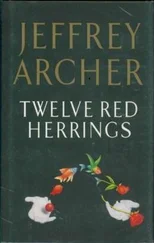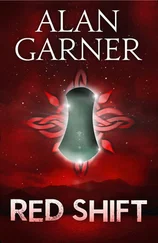Alan Bradley - A Red Herring Without Mustard - A Flavia de Luce Novel
Здесь есть возможность читать онлайн «Alan Bradley - A Red Herring Without Mustard - A Flavia de Luce Novel» весь текст электронной книги совершенно бесплатно (целиком полную версию без сокращений). В некоторых случаях можно слушать аудио, скачать через торрент в формате fb2 и присутствует краткое содержание. Жанр: Старинная литература, на русском языке. Описание произведения, (предисловие) а так же отзывы посетителей доступны на портале библиотеки ЛибКат.
- Название:A Red Herring Without Mustard: A Flavia de Luce Novel
- Автор:
- Жанр:
- Год:неизвестен
- ISBN:нет данных
- Рейтинг книги:4 / 5. Голосов: 1
-
Избранное:Добавить в избранное
- Отзывы:
-
Ваша оценка:
- 80
- 1
- 2
- 3
- 4
- 5
A Red Herring Without Mustard: A Flavia de Luce Novel: краткое содержание, описание и аннотация
Предлагаем к чтению аннотацию, описание, краткое содержание или предисловие (зависит от того, что написал сам автор книги «A Red Herring Without Mustard: A Flavia de Luce Novel»). Если вы не нашли необходимую информацию о книге — напишите в комментариях, мы постараемся отыскать её.
A Red Herring Without Mustard: A Flavia de Luce Novel — читать онлайн бесплатно полную книгу (весь текст) целиком
Ниже представлен текст книги, разбитый по страницам. Система сохранения места последней прочитанной страницы, позволяет с удобством читать онлайн бесплатно книгу «A Red Herring Without Mustard: A Flavia de Luce Novel», без необходимости каждый раз заново искать на чём Вы остановились. Поставьте закладку, и сможете в любой момент перейти на страницу, на которой закончили чтение.
Интервал:
Закладка:
Which brought me back to Brookie Harewood.
One thing I was quite certain of was this: that the riddle of Brookie’s death would be solved not by cameras, notebooks, and measuring tapes at the Poseidon fountain, but rather in the chemical laboratory.
And I was just the one to do it.
I was still thinking about riddles as I slid down the banister and landed in the foyer. Nursery rhyme riddles had been as much a part of my younger years as they had anyone else’s.
Thirty white horses upon a red hill
Now they tramp, now they champ
Now they stand still .
“Teeth!” I would shout, because Daffy had cheated and whispered the answer in my ear.
That, of course, was in the days before my sisters began to dislike me.
Later came the darker verses:
One’s joy, two’s grief ,
Three’s marriage; four’s a death .
The answer was “magpies.” We had seen four of these birds land on the roof while having a picnic on the lawn, and my sisters had made me memorize the lines before they would allow me to dig into my dish of strawberries.
I didn’t yet know what death was, but I knew that their verses gave me nightmares. I suppose it was these little rhymes, learned at an early age, that taught me to be good at puzzles. I’ve recently come to the conclusion that the nursery rhyme riddle is the most basic form of the detective story. It’s a mystery stripped of all but the essential facts. Take this one, for instance:
As I was going to St. Ives
I met a man with seven wives .
Each wife had seven sacks
Each sack had seven cats
Each cat had seven kits .
Kits, cats, sacks, wives
How many were going to St. Ives ?
The usual answer, of course, is “one.” But when you stop to think about it, there’s much more to it than that. If, for instance, the teller of the rhyme happened to be overtaking the man with the traveling menagerie, the actual number—including sacks—would be almost three thousand!
It all depends upon how you look at things.
Mrs. Mullet was having her tea at the window. I helped myself to a digestive biscuit.
“The Hobblers,” I said, diving in with both feet. “You said they’d have my blood for sausages. Why?”
“You keep clear o’ them lot, miss, like I told you.”
“I thought they were extinct?”
“They smells just the same as everybody else. That’s why you don’t reck’nize ’em till somebody points ’em out.”
“But how can I keep clear of them if I don’t know who they are?”
Mrs. M lowered her voice and looked over both shoulders. “That Mountjoy woman, for one. God knows what goes on in ’er kitchen.”
“Tilda Mountjoy? At Willow Villa?”
I could hardly believe my good fortune!
“The very one. Why, it was no more than this morning I saw her in the Gully—headed for the Palings, she was, just as bold as brass. They still go there to do things with the water—poison it, for all I know.”
“But wait,” I said. “Miss Mountjoy can’t be a Hobbler—she goes to St. Tancred’s.”
“To spy, most likely!” Mrs. Mullet snorted. “She told my friend Mrs. Waller it was on account of the organ. The ’Obblesr got no organs, you know—don’t ’old by ’em. ‘I do love the sound of a good organ well played,’ she told Mrs. Waller, who told it to me. Tilda Mountjoy’s an ’Obbler born and bred, as was ’er parents before ’er. It’s in the blood. Don’t matter whose collection plate she puts ’er sixpences in, she’s an ’Obbler from snoot to shoes, believe you me.”
“You saw her in the Gully?” I asked, making mental notes like mad.
“With my own eyes. Since that Mrs. Ingleby come into her troubles I’ve been havin’ to stretch my legs for eggs. All the way out to Rawlings, now, though I must say they’re better yolks than Ingleby’s. It’s all in the grit, you know—or is it the shells? ’Course once I’m all the way out there, it makes no sense to go traipsin’ all the way back round, does it? So it’s into the Gully I go, eggs and all, and take a shortcut through the Palings. That’s when I seen her, just by Bull’s bonfires, she was—no more’n a stone’s throw ahead of me.”
“Did she speak to you?”
“Ho! Fat chance of that, my girl. As soon as I seen who it was I fell back and sat on a bank and took my shoe off. Pretended I’d got a stone in it.”
Obviously, Mrs. M had been walking in the same direction as Miss Mountjoy, and was about to overtake her—just like the person who was walking to St. Ives.
“Good for you!” I said, clapping my hands together with excitement and shaking my head in wonder. “What a super idea.”
“Don’t say ‘super,’ dear. You know the Colonel doesn’t like it.”
I made the motion of pulling a zipper across my lips.
“Oon ewdge?”
“Sorry, dear. I don’t know what you’re saying.”
I unfastened the zipper.
“Who else? The other Hobblers, I mean.”
“Well, I really shouldn’t say, but that Reggie Pettibone, for one. His wife, too. Reg’lar stuffed hat, she thinks she is, at the Women’s Institute, all Looey the Nineteenth, an’ that.”
“Her husband owns the antiques shop?”
Mrs. Mullet nodded her head gloomily, and I knew she was reliving the loss of her Army and Navy table.
“Thank you, Mrs. M,” I said. “I’m thinking of writing a paper on the history of Buckshaw. I shall mention you in the footnotes.”
Mrs. Mullet primped her hair with a forefinger as I walked to the kitchen door.
“You stay away from them lot, mind.”
 SEVENTEEN
SEVENTEEN 
LIKE SEVERAL OF THE shops in Bishop’s Lacey, Pettibone’s had a Georgian front with a small painted door squeezed in between a pair of many-paned bow windows.
I bicycled slowly past the place, then dismounted and strolled casually towards the shop, as if I had only just noticed it.
I put my nose to the glass, but the interior was too dim to see more than a stack of old plates on a dusty table.
Without warning, a hand came out of nowhere and hung something directly in front of my face—a hand-lettered cardboard sign.
CLOSED, it said, and the card was still swaying from its string as I made a dash for the door. I grabbed the knob, but at the same instant, the disembodied pair of hands seized it on the inside, trying desperately to keep it from turning—trying to drive home the bolt before I could gain entry.
But luck was on my side. My hearty shove proved stronger than the hands that were holding it closed, and I was propelled into the shop’s interior a little faster than I should have liked.
“Oh, thank you,” I said. “I thought you might be closed. It’s about a gift, you see, and—”
“We are closed,” said a cracked, tinny voice, and I spun round to find myself face to face with a peculiar little man.
He looked like an umbrella handle that had been carved into the shape of a parrot: beaked nose, white hair as tight and curly as a powdered wig, and red circles on each cheek as if he had just rouged them. His face was powder white and his lips too red for words.
He seemed to stand precariously on his tiny feet, swaying so alarmingly backwards and forwards that I had the feeling he was about to topple from his perch.
“We’re closed,” he repeated. “You must come back another time.”
“Mr. Pettibone?” I asked, sticking out a hand. “I’m Flavia de Luce, from Buckshaw.”
Читать дальшеИнтервал:
Закладка:
Похожие книги на «A Red Herring Without Mustard: A Flavia de Luce Novel»
Представляем Вашему вниманию похожие книги на «A Red Herring Without Mustard: A Flavia de Luce Novel» списком для выбора. Мы отобрали схожую по названию и смыслу литературу в надежде предоставить читателям больше вариантов отыскать новые, интересные, ещё непрочитанные произведения.
Обсуждение, отзывы о книге «A Red Herring Without Mustard: A Flavia de Luce Novel» и просто собственные мнения читателей. Оставьте ваши комментарии, напишите, что Вы думаете о произведении, его смысле или главных героях. Укажите что конкретно понравилось, а что нет, и почему Вы так считаете.












